Once, When We Were Heroes
(I will never explain the early days of AIDS better then this, so I post this essay to commemorate World AIDS Day every year.)

My brother Richard smiles a lot. He has an easy laugh. But there was a time, years ago, when he held a poisonous drink in his hands and begged his dying lover not to swallow it. A time when Richard held the concoction they had prepared together and wept.
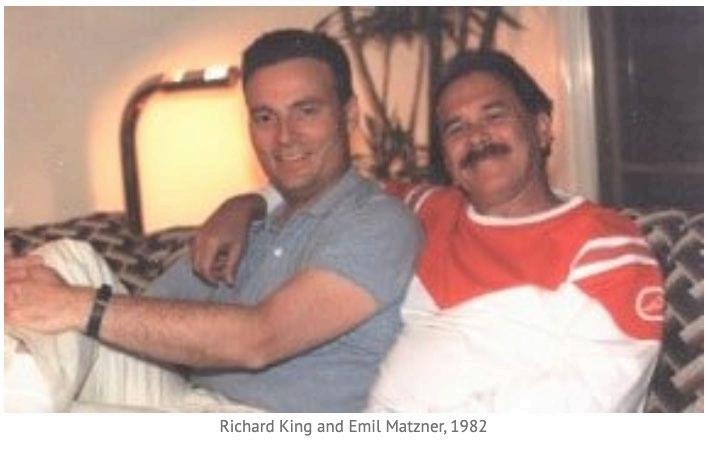 For more blogs and information about Mark S. King visit: www.marksking.com
For more blogs and information about Mark S. King visit: www.marksking.com
Emil couldn’t wait. He took the drink from Richard quickly, because the release it offered was something more rapturous than the appeals of his lover of thirteen years.
It was Emil’s wish to die on his own terms if living became unbearable, a promise made one to the other. When that time arrived, however, Richard wanted another moment, just a little more time to say, “I love you, Emil,” over and over again, before the drink would close Emil’s eyes and quietly kill him.
Richard has a charming store in my hometown today, where he sells collectibles and does theater in his free time. The drink was consumed more than thirty years ago.
There were people who displayed remarkable courage then. People who lived and died by their promises and shared the intimacy of death, and then the world moved forward and grief subsided and lives moved on. But make no mistake, there are heroes among us right now.
There is a shy, friendly man at my gym. There was a time when his sick roommate deliberately overdosed after his father told him that people with unspeakable diseases will suffer in hell. My gym friend performed CPR for an hour before help arrived, but the body never heard a loving word again.
There is courage among us, astonishing courage, and we summoned it and survived. And then years passed. We got new jobs and changed gyms.
There was a time when old friends called to say goodbye, and by “goodbye” they meant forever. When all of us had a file folder marked “Memorial” that outlined how we wanted our service to be conducted. When people shot themselves and jumped off bridges after getting their test results.
There is profound, shocking sadness here, right here among us, but years went by and medicine got better and we found other lives to lead. Our sadness is a distant, dark dream.
My best friend Stephen just bought a new condo. He’s having a ball picking out furniture. But there was a time when he knew all the intensive care nurses by name. When a phone call late at night always meant someone had died. And just who, exactly, was anyone’s guess.
Stephen tested positive in the 1980s, shortly after I did. A few months after the devastating news, he agreed to facilitate a support group with me. We regularly saw men join the group, get sick and die, often within weeks.
Watching them disintegrate felt like a preview of coming attractions. But Stephen was remarkable, a reassuring presence to everyone, and worked with the group for more than a year despite the emotional toll and the high body count.
There is bravery here, still, living all around us. But the bravest time was many years ago, and times change and the yard needs landscaping and there’s a brunch tomorrow.
There was a time when I sat beside friends in their very last minutes of life, and I helped them relax, perhaps surrender, and told them comforting stories. And lied to them.
Jeremy lost his mind weeks before he died. Sometimes he had moments of sanity, when we could have a coherent conversation before his dementia engulfed him again. It was a time when you were given masks and gloves to visit friends in the hospital.
He was agitated with the business of dying, and told me he couldn’t bear to miss what might happen after he’d gone. I had an idea.
“I tell you what,” I offered, “I’m from the future, and I can tell you anything you would like to know.”
“OK then, what happens to my parents?” he asked. I thought it might be a distracting game, but Jeremy’s confused mind took it very seriously.
“They went to Hollywood and won big on a game show, so they never did need your support in their old age,” I answered. He barely took the time to enjoy this thought before his hand grabbed my wrist, tightly, almost frantically. He pulled me closer.
“When…” he began, and a mournful sob swelled inside him in an instant, his eyes begging for relief. “When does this end?” There was an awful, helpless silence. His eyes beckoned for a truth he could die believing.
“It does end,” I finally managed, although nothing suggested it would. “It ends, Jeremy, but not for a really long time.” He digested each word like a revelation, and slowly relaxed into sleep.
There is compassion here, enough for all the world’s deities and saints acting in concert. Infinite compassion for men who lived in fear and checked every spot when they showered for Kaposi sarcoma, and for disowned sons wasting away in the guest room of whoever had the space. But we get older, and friends don’t ask
us to hold their hand when they stop breathing, and the fear fades and I bought new leather loafers and the White Party is coming.
The truth is simply this, and no one will convince me otherwise: My most courageous self, the best man that I’ll ever be, lived more than two decades ago during the first years of a horrific plague.
He worked relentlessly alongside a million others who had no choice but to act. He secretly prayed to survive, even above the lives of others, and his horrible prayer was answered with the death of nearly everyone close to him.
To say I miss that brutal decade would only be partially true. I miss the man I was forced to become, when an entire community abandoned tea dances for town hall meetings, when I learned to offer help to those facing what terrified me most.
Today, the lives of those of us who witnessed the horror have become relatively normal again, perhaps mundane. We prefer it. We have new lives in a world that isn’t choking on disease.
But once, there was a time when we were heroes.

Why not join our campaign? Join our facebook group and write us to be one of our ambassadors for change. https://www.facebook.com/groups/1471719986427887
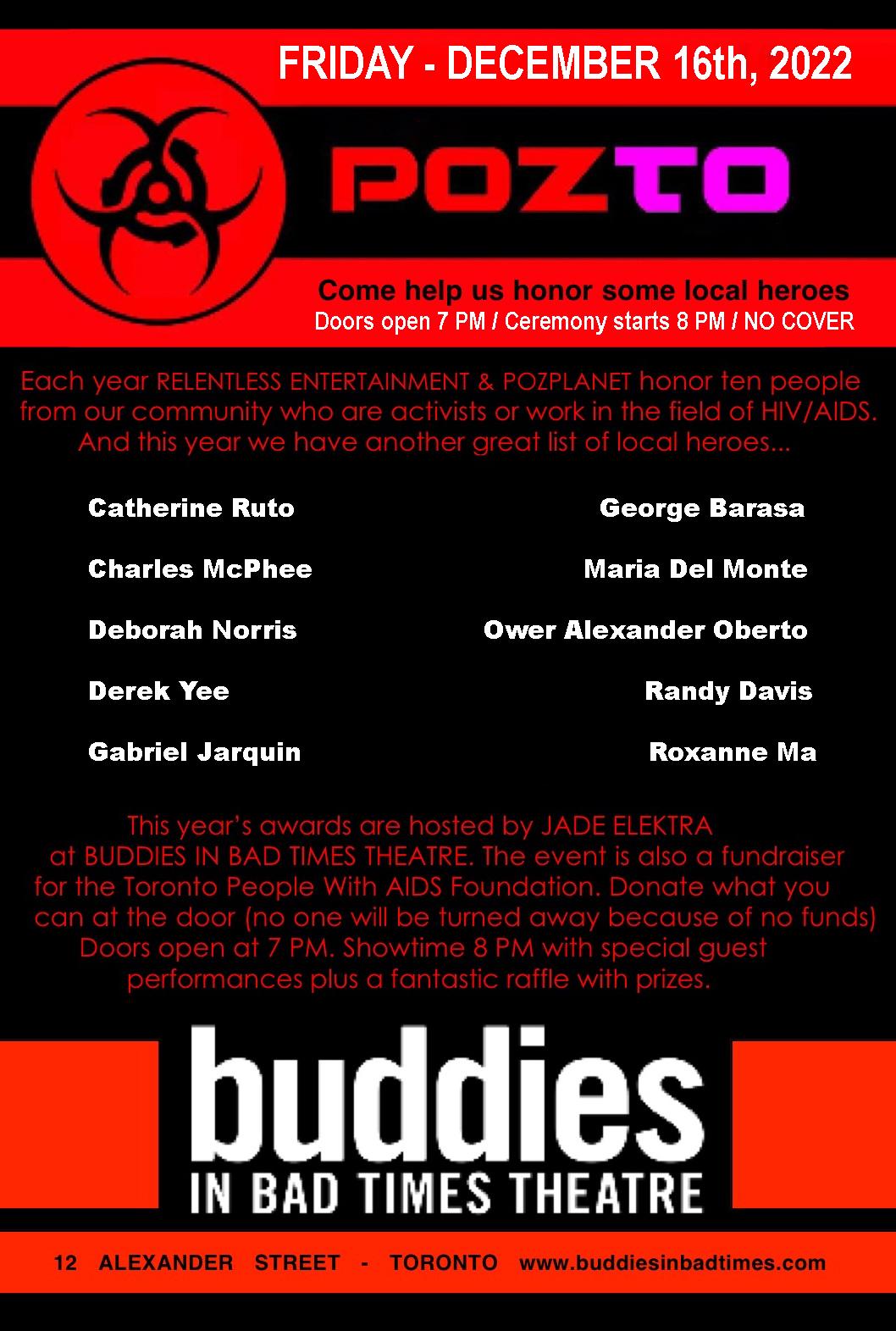
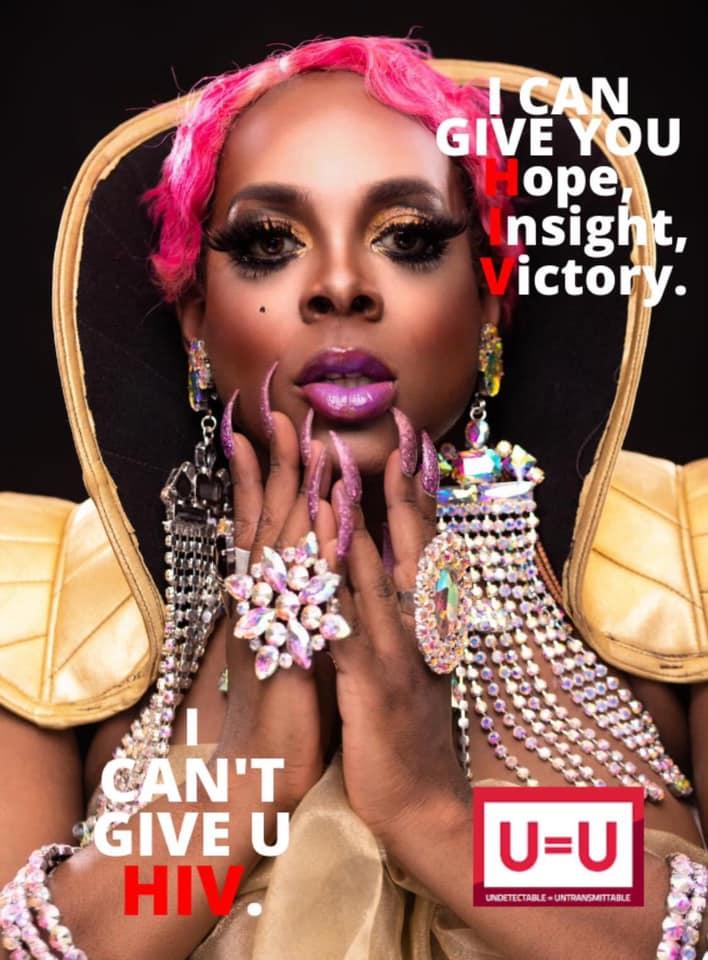
Last month I talked about research that was done by CHIWOS. Testing and stigma were two of the things that I talked about. When we think about testing, I wanted to know what has changed? How are women being treated by healthcare providers when they are being tested? What supports are they being given? What stigma are they experiencing? Who is providing support when they experience stigma?
I was able to hear from a cross section of women living with HIV but was unable to interview a trans or non-binary person who identifies as a woman. Some people have said that some of the issues I highlight are not specific to women. That people living with HIV in general experience these same issues. This is true but I challenge you to consider this: there is no organization specific to providing support to women living with HIV in Canada currently. There are only a small number of healthcare organizations that provide specific women centred care (three that I know of) and only in very large cities. Almost every HIV organization across Canada has a program that is specific to the needs of gay, bi and men who have sex with men. This is because they continue to be the largest demographic of people who are being diagnosed with HIV. But I challenge that: is that because they are being targeted constantly with messaging about testing, where to go for treatment, have direct supports once they are diagnosed? Women are left out of this. We are not receiving messaging that we are at risk and need to be tested. In fact, we are often discouraged from being tested and our testing needs ignored, even if we have symptoms, as we are not seen as being at risk. Once diagnosed, unless we live in a very large city (eg Montreal, Vancouver and Toronto), our specific needs around treatment and support are ignored. After each person shares their story, I have questions. A lot of questions.
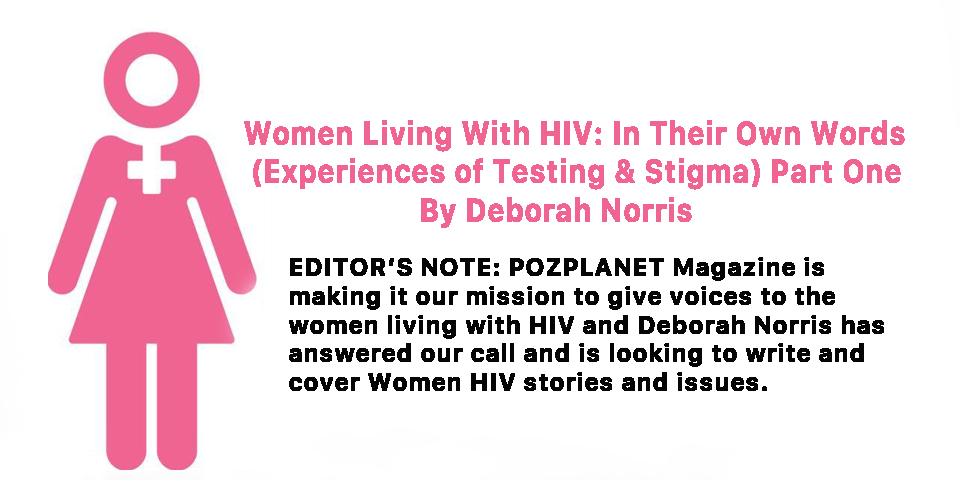
Women living with HIV: their stories: testing, stigma
CM was tested for HIV as part of medical screening when immigrating. She got a phone call saying she needed to be re tested and to come into the office again. A doctor told her that she had tested positive for HIV. “It was quite harsh. I was coming from a background where HIV was not viewed positively. I was not prepared and not given pre test counseling. I was not prepared for what she told me.” She walked out of the doctor’s office and was in tears. The woman who brought her to the appointment hugged her. She was living with the woman and “she made my journey easy and said ‘You are in Canada. There is support for you out there.’ The first few months were very tough.” She was contacted by the contact tracing nurse, and she helped her find a doctor and connect her with her local HIV organization. “I wasn’t ready at that point to talk to anyone, so I didn’t phone right away. She followed up by phoning me and asking me if it was ok for her to give the (HIV organization) my number.” The worker at the local HIV organization, who is a peer, called her and was very supportive. “That was a turning point in my life. Her coming into my life turned things from being bad to being good. Within a month, she made sure I had warm clothes and other household items I needed. Within a couple of months, she drove me to my first appointment with my HIV specialist. I started on my meds in February and by June in 2019 I was undetectable. I wouldn’t even be talking to you if I had not had the support from (the worker) and (ASO). I called the nurse and told her that my story will not be told without talking about her. She went above and beyond. She didn’t give up. She went the extra mile to check on me and to ensure I had the support I needed. She said that she could tell from my voice that I was not ok and that was why she called back.”
“I have not had incidents of stigma when I’ve been seeking treatment for HIV. I recently had to go in for a health issue unrelated to HIV and the healthcare professionals knew nothing about my HIV meds. They ignored me and I believe it could be because of my HIV. I think the HIV clinics are good because they understand. I think general doctors need to have education about HIV because they can provide support. There is no HIV specialist where I live. I have to drive an hour to get to see a doctor or take two buses. It would be nice to have an infectious disease specialist in every hospital.”
“I’ve moved to a different province and the clinic I go to has a social worker and a nurse that I can see. I reached out to my local HIV organization, but they have not been helpful. I have not been connected with subsidized housing, employment supports, financial supports and personal supports.”
When I think about CM’s story, I am grateful she had the supports she needed eventually after her diagnosis. I wonder why immigration doctors who are doing testing are not doing pre-test counseling? I wonder why they are not doing referrals immediately to connect people to care? I think about the contact tracing nurse. If she had not followed up with CM, what might have happened? It is not the job of a contact tracing nurse to connect people to care or do follow up. CM would not be connected to care. She would not be connected to peer support from her local HIV organization. She would be alone in a strange country with no supports to deal with HIV. Now CM is in another province and is once again feeling very alone. She has been
connected to an HIV clinic but there are no direct supports there. Her local HIV organization is not supporting her, even though she attempted to reach out to them. Once again, she is being left behind. Fortunately, she connected with me because her former worker at the HIV organization knows that I do peer support, so I have ensured that she has the connections she needs. But again, why does the system rely on chance? This should not be left up to chance. Kellie: She got a blood transfusion when she was young. It took at least six months for her to be tested after the transfusion. “I was only 16 and walked into a room full of white coats. They told me I had HIV, and I was put on medication right away and started on AZT. I am part of the tainted blood scandal. I was put into the paediatric clinic for people with HIV. They offered to bring me to Toronto for a women’s support group. But I lived 3 hours away so didn’t want to travel that far.”
“I didn’t tell anyone, only my immediate family knew. My high school sweetheart at time was supportive. He would take me for my appointments and get tested regularly. Stigma started when I started dating after I left him about 27 years ago. People would say ‘No thank you.’ It’s hard to know when to disclose: at the beginning of the date or when they got to know me?” “When I went to the hospital for anything, I was often treated nicely. Nurses treated me well. There needed to be more information back then about women and pregnancy. I chose not to have children. I wish I had been given more support around this.” She also said, “There should be a better transition from child to adult HIV care.” She was sent to the adult clinic with no transition at the age of 18.
Kellie’s story is heartbreaking. She got her diagnosis at a time when very little was known about HIV. She had support at home but no other supports. She deals with the issues around disclosure most people living with HIV have had. Who to tell? How to tell? How to deal with rejection? Where can she go for support to deal with these issues? Why did no one talk to her about pregnancy? Why was she expected to go to an adult clinic with no transitional supports?
At one of the CHIWOS sessions I recently attended, this was identified as an ongoing issue. Kathleen: “I found out I was positive in January of 2000. I had symptoms and the walk in clinic thought it was pancreatitis. They decided to do an HIV test without my knowledge. Three weeks later, the walk in clinic called me at home to tell me that I had been diagnosed with HIV. They wanted to give me numbers to call but I hung up. I was emotionally distraught. Within 6 weeks, my husband who I was separated from filed for custody of my three kids, based on my HIV status, and filed for divorce. I had to have supervised visitation with my kids. I found out that my partner of 6 weeks had tested positive 7 years prior, and he had not been using protection with me. He was in total denial. I went to the Voices of Positive Women’s website, and it gave me a lot of information. I reached out for support to them and Theresa Group. The judge gave custody of my kids to my husband because I was HIV positive. I learned early in my diagnosis not to be honest about my status. I was going for massages, and they started treating me differently after I disclosed. My file had HIV Positive written in red sharpie marker. I complained and told them that they should be using universal precautions and assuming that all their clients could be carrying a communicable disease. My family has been discriminatory. A sister who would not drink out of a cup I used. I no longer have contact with her. I got to a point where I do not care who knows. But I am going for massages and have not disclosed. I know
how to keep people safe, so I do not need to disclose. When I told my oldest child, I told her to be careful who she told. She has told me that she was afraid to tell even her partner when she was older. My fear affected my kids. I was diagnosed with Hepatitis C in 2006 because I had started using. I was treated and cured of Hepatitis C in 2017. If I hadn’t got support, I would not have been cured of Hepatitis C and would not be on HIV treatment. I was extremely depressed and did not seek treatment for either HIV or Hepatitis C.”
Again, why is follow up after testing left to chance? Why did the walk in clinic give her such life changing news over the phone? Why did she not have someone to support her through dealing with an ex partner who was using her diagnosis against her and preventing her from having custody of her children? Why would a judge use this against her? She was fortunate that at the time of her diagnosis, Voices of Positive Women existed, and she was able to find it online. It has been defunded and no longer exists. She is lucky to live in a large city where she can access the services of Teresa Group, an organisation that provides clinical care to women living with HIV in Toronto. What about women who live elsewhere? Where do we go?
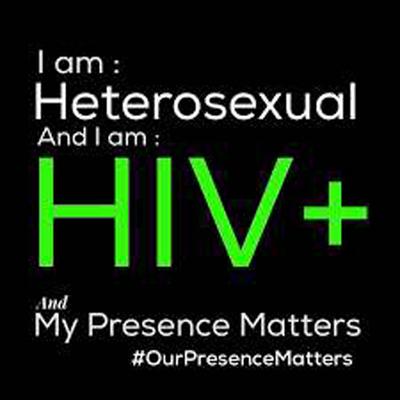
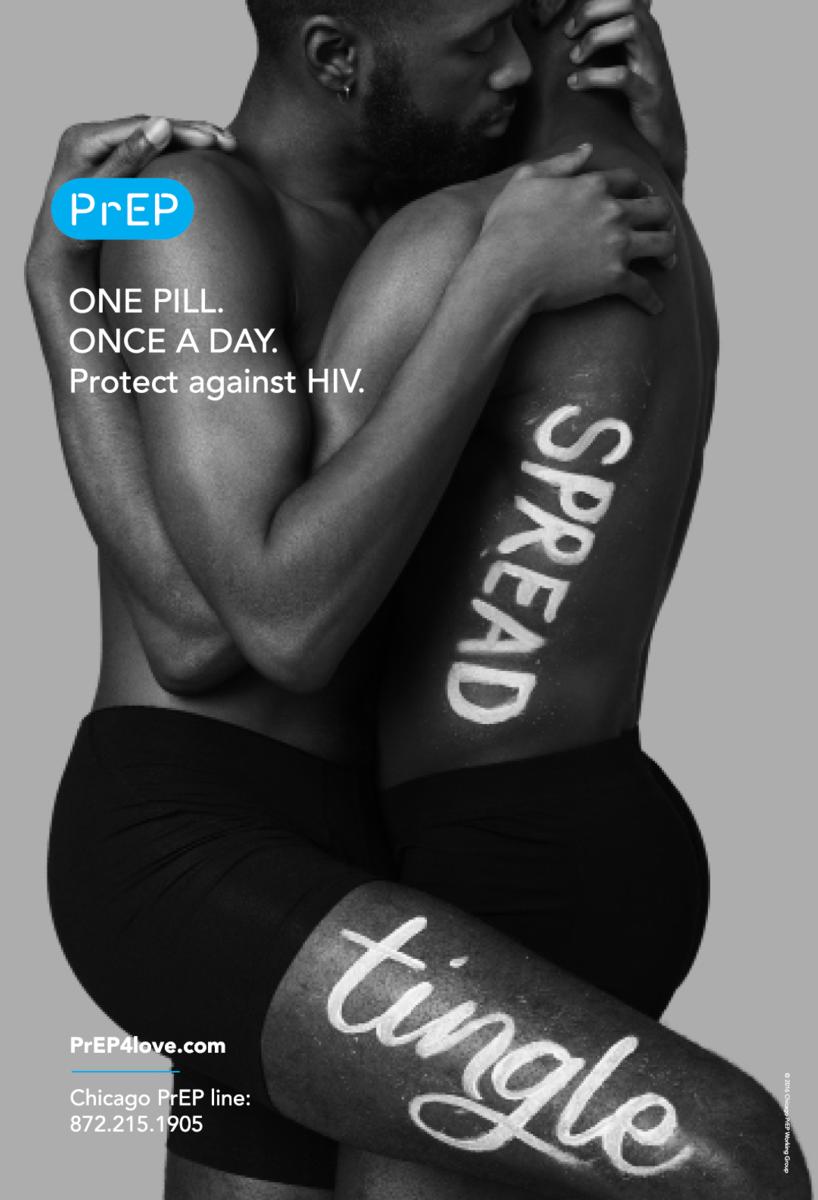
I’m in my 70s, part of a demographic in the HIV community - seniors - that is increasingly the majority. In reality, you don’t hear much from us. Retirement largely sees to that, aided by factors like declining health, a desire for a new lazier looking life and more.
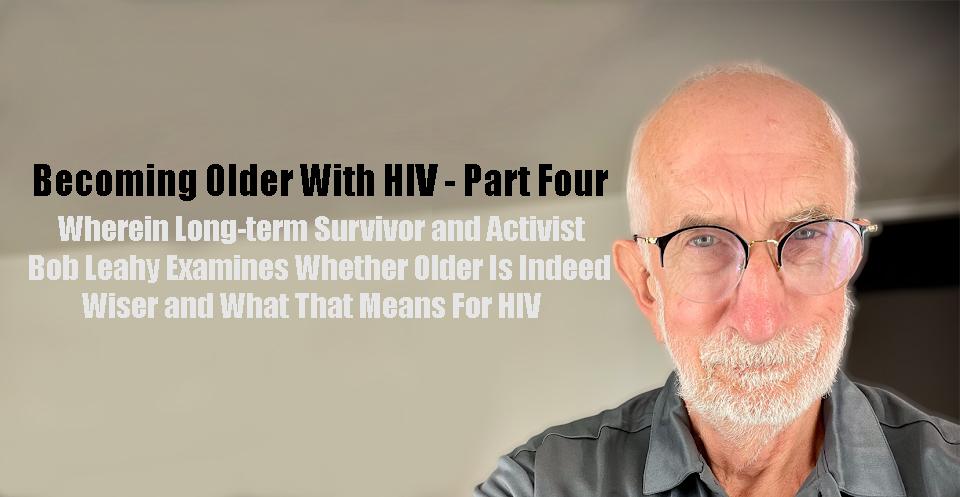
At the same time there’s a narrative, amplified best by the indigenous community, that says elders bring much to the table. That position acknowledges a lifetime of lived experience and perhaps a growing ability to arrive at life’s core truths. Wisdom, in other words.
Do I buy the “older but wiser” thing? I think I do. I’ve seen see my views and opinions evolve over time; that didn’t stop when I hit 65. True, my golden years have seen more crankiness emerge than I’d like, more short fuses than I’d like, more swearing even. Not everything about ageing is a good thing. But, yes, my opinions have evolved. Stepping back from work in the HIV community has contributed to that. Group-think, after all, lives and breathes in many of those who work in the HIV community. I was always more of an independent thinker
Group think, I’ve always argued, needs to be constantly challenged. As a writer and publisher and sometimes labelled an influencer, I tended to find myself as a minority voice. An article I wrote a decade ago called “Changing my Mind on Treatment as Prevention”, for example, may not have changed the course of
history, because the community as a whole remained opposed to the concept of treatment as prevention for years after that, even pushing back on U=U in it’s early days. But my maverick article was widely shared, translated and eventually published in several languages. Google it if you’re curious.
Point is that our ideas and views evolve, sometimes even take a U turn. Here’s another example drawn from life.
I’ve come to believe – and this is a sea change - that a lot of anti HIV stigma messaging is hurting us. How? By actually increasing stigma. Slogans like “smash stigma” and “end stigma now” touted by some really fine organizations like Casey House and CANFAR in Canada, for example, arguably perpetuate, in fact magnify, the extent of stigma in our society. Of course, it’s out there, the research is clear. We also know that who experiences it most depends significantly on who you are. But Ontario’s HIV Stigma Index has made it clear that enacted stigma has been experienced only by about 60% of their Toronto based sample. Anticipated stigma, on the other hand was admitted to by 85%. In other words, we expect more stigma than we actually experience. Why the big gap between the two? Is it because of the work done by our organizations? In shouting about the existence of stigma, how it kills even? It quickly becomes ingrained, including to the newly diagnosed, that they are in for a rough ride, that society doesn’t like us. And while we’re on the subject, it’s not as if there aren’t better ways of getting the message across, whether its about enacted stigma, anticipated stigma or internalized stigma, the latter a phenomenon which about 50% of the Toronto sample identified with. The much-respected Ontario HIV Treatment Network (OHTN)) recently posed this question: “Do we talk directly about HIV stigma or do we address the fears underlying stigma (like fear of infection)? Do we talk about it in different ways that help reduce stigma?” I say yes. (There are fine examples of that approach out there too.
In any event, my point is opinions evolve over time. Look, for example, how widespread opposition to treatment as prevention morphed into near global support for its cousin, U=U. On a personal note, I’d argue ageing is a huge contributor to how our own views change. Whether that’s wisdom at work, or science or brain chemistry or something else, I’m not sure. But if wisdom, aided by experience gleaned over the years is a candidate, I vote for wisdom.
So how do we harness wisdom? How the HIV community nurtures older voices, including those of retired community members and activists, remains a discussion to be had. We hear about intergenerational learning - the process of the old learning from the young and vice versa – but it’s largely unexplored territory
We seniors do have something to offer, I’d say. But as a senior, I also appreciate the joys of retirement. We tire more, though. Banksy said “when you get tired, learn to rest, not quit.” He’s a smart guy, that Bansky! At some point in our life though, we have to quit, wisdom, crankiness and all. I’m not quite there yet.
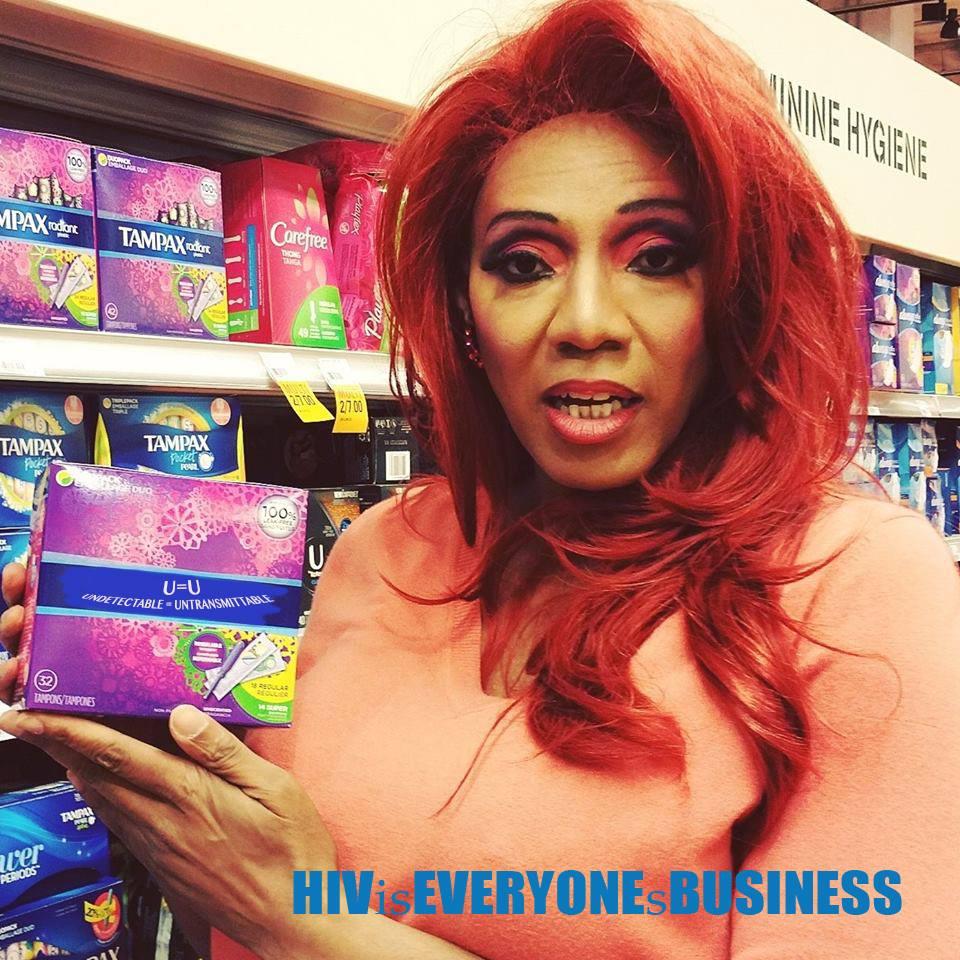
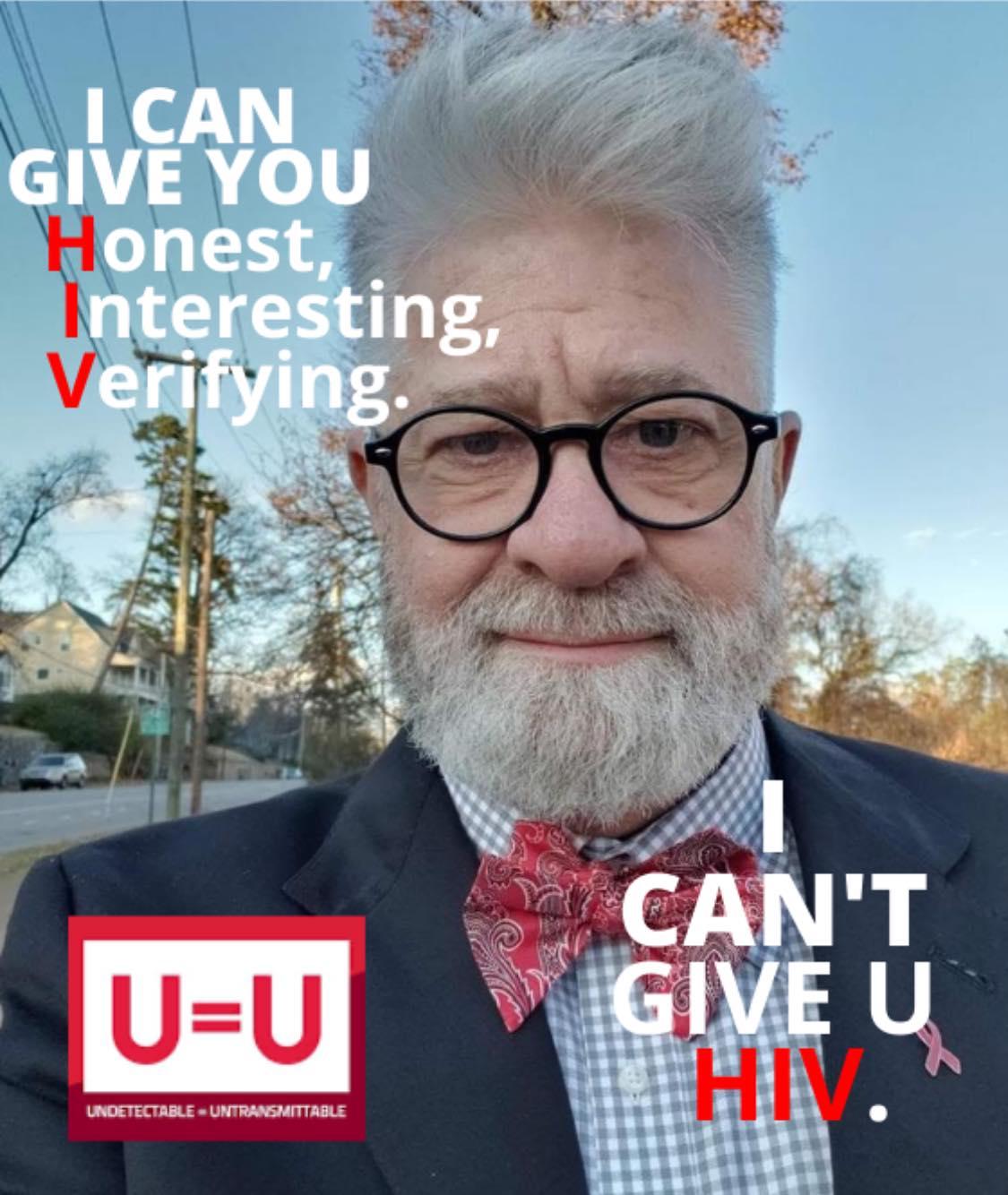
Older people living with HIV cannot be ignored and must NOT be left behind
Overlooked in global plans to end AIDS by 2030, a growing, International Coalition of Older People with HIV (iCOPe HIV) and allies have issued a wake up call about serious gaps in the world’s HIV response.
Toronto, Ontario, November 21, 2022 – During a session of the International Congress on Drug Therapy in HIV infection (HIV Glasgow 2022) on October 26, 2022, Mario Cascio of the European AIDS Treatment Group (EATG) stood up and read a prepared statement (known as the Glasgow Manifesto).
“Our bodies, hearts, minds, and pocketbooks reveal scars earned building the modern HIV response. As we age, many of us are living with multiple chronic health conditions, coping with frailty, disability and/or cognitive changes, becoming more socially isolated, and experiencing ageism in addition to HIV stigma and other forms of discrimination. Our independence, quality of life, and longevity are compromised and yet the HIV response has not evolved with us. It is past time for us to assert our rights to health, dignity, and support!” (from the preamble to the Glasgow Manifesto)
Later, Cascio said, “As a person who has been living with HIV for almost 40 years now, I was pleased and honored to be the one launching the Glasgow Manifesto at HIV Glasgow 2022. It was like speaking to the world about us, giving voice to the great number of older people living with HIV worldwide, struggling in their daily lives and often neglected. It was indeed a great moment with great response coming from the audience.”
The calls for action in the Manifesto, centering on three main themes – care, quality of life and empowerment – have emerged from experiences of marginalization, even within the HIV community. The founding members of iCOPe HIV (authors of the Manifesto) have been struggling for years to have concerns of older adults with HIV taken seriously. This year’s International AIDS Conference in Montreal (AIDS 2022) (29 July –August 2, 2022) marked the first time a space for discussion of HIV and ageing issues (the Silver Zone) was approved – after earlier organizing efforts were denied.
Kate Murzin of Realize (Canada), one of the co organizers of the Silver Zone, said, “the global community’s slow response to the changing demographics of HIV has been frustrating and difficult to understand. In 2020, there were an estimated 7.5 million people over the age of 50 living with HIV around the world. Close to 40% of people with HIV who live in high income countries will be at least 60 years old within the decade. And by 2040, over 9 million people living with HIV in sub Saharan Africa will be over 50. These aren’t just numbers. They are people, organizers, community leaders, caregivers, and much more.”
In the words of Axel Vanderperre of UTOPIA_BXL (Belgium), “I have the impression the 65+ group is forgotten, or at least there is no clinical pathway to respond to their many
needs, whether physical, mental, emotional, social, or sexual. Visits to the clinic could be so much more effective if older people living with HIV were given the tools to share what’s most important to them in advance of the appointment. The community also needs access to education and programs that enable us to take charge of our healthinitiatives to prevent comorbidities and frailty, foster healthy behaviours, and reduce pain and mental health problems.”
Jules Levin of the National AIDS Treatment Advocacy Project (USA) added, “we are calling for an integration of comprehensive geriatric screening, care and support services for the elderly and older people living with HIV into the HIV clinic infrastructure. We are calling for all governmental health officials to design and implement new models of care in the clinic for prevention and care of comorbidities. Without this, premature mortality will increase.”
The authors of the Manifesto are clear that what is needed is not just improved care and quality of life. Cascio’s colleague at EATG, Anton Basenko, stated, “we expect that ageing and older adults are represented in all HIV research and that people living with HIV are included in ageing research, so we are clear on what the findings mean for our well being. We demand access to the most up to date information on ageing with HIV. But knowledge, information and research are nothing if we are not meaningfully involved. We demand that ageing and older people be included in decision making about the HIV response, including priority- and target setting, funding allocation, and messaging about the impact of HIV on ageing and older adults. Stop talkenism - it’s time to act!”
The coalition’s calls to action have struck a chord with many people involved in the global fight against AIDS. According to Murzin, “since Mario delivered the Manifesto publicly on October 26, 118 HIV organizations around the world have signed-on – a groundswell of support we hope to translate into action and systemic change.”
About iCOPe HIV:
The International Coalition of Older People with HIV (iCOPe HIV) is a newly established network of people and organizations committed to improving care, optimizing quality of life, and fostering empowerment among ageing and elderly (age 65+) people living with HIV around the world. Its founding member organizations include the European AIDS Treatment Group (EATG), the National AIDS Treatment Advocacy Project (NATAP, USA), Realize (Canada) and UTOPIA_BXL (Belgium).
Quotes:
“If you want to advocate, to reach your goals and to make positive changes, you have to be empowered! Empowerment helps us building the partnerships and bridging the gaps, empowerment gives us motivation and sense of unity. We see empowerment in targeted research and education. We expect that ageing and older adults are represented in all HIV research and that people living with HIV are included in ageing research, so we are clear on what the findings mean for our well-being. We demand access to the most up to date information on ageing with HIV. But knowledge,
information and research are nothing if we are not meaningfully involved. We demand that ageing and older people be included in decision-making about the HIV response, including priority- and target setting, funding allocation, and messaging about the impact of HIV on ageing and older adults. Stop talkenism - it’s time to act!”
Anton Basenko, European AIDS Treatment Group (EATG)
“Our HIV population is aging quickly yet care has not kept up with the needs of these older and elderly PLWH. Many suffer higher rates of heart disease and cognitive and physical impairments or disabilities among other comorbidities. Yet we do not have a care infrastructure that provides elder, geriatric screenings and care as we very much need. We are calling for an integration of comprehensive geriatric screening, care, and support services for the elderly and older PLWH into the HIV clinic infrastructure. We are calling for all governmental health officials to design and implement new models of care in the clinic for prevention and care of comorbidities. Without this, premature mortality will increase.”
Jules Levin, National AIDS Treatment Advocacy Project (NATAP)
“Here in Europe, USA, and other parts of the world for the HIV elderly over 65, rates of cognitive impairment and physical impairment or disabilities are high. Elderly or older people living with HIV I know walk with difficulties, cannot function well, have problems in relationships - because of cognitive and physical decline and disability. The studies show people living with HIV contract comorbidities 10 to 15 years earlier, on average, than the general population and several recent studies show reduced lifespan and quality of life. It’s worth noting, too, that women with HIV suffer more inflammation, earlier and more comorbidities, and greater reductions in quality of life and physical impairment.”
Axel Vanderperre, UTOPIA_BXL
“As a person who has been living with HIV for almost 40 years now, I was pleased and honored to be the one launching the Glasgow Manifesto at HIV Glasgow 2022. It was like speaking to the world about us, giving voice to the great number of older people living with HIV worldwide, struggling in their daily lives and often neglected. It was indeed a great moment with great response coming from the audience.” Mario Cascio, European AIDS Treatment Group (EATG) (Photo below: Mario Cascio delivers the Glasgow Manifesto to international HIV community, October 26, 2022)
“Older people living with HIV shouldn’t have to fear looking for support from an HIV organization, a seniors’ centre or a retirement residence because of HIV stigma, ageism, or both. Service providers need to be knowledgeable about HIV and the impact of previous experiences of loss and discrimination on the needs of ageing and older people living with HIV today. Policy makers need to understand, too, that long term consequences of living with HIV into older adulthood are poverty and limited caregiving support. These realities don’t jive with the idea of ageing well with HIV.”
Kate Murzin, Realize (Canada)
“I have the impression the 65+ group is forgotten, or at least there is no clinical pathway to respond to their many needs, whether physical, mental, emotional, social, or sexual. Visits to the clinic could be so much more effective if older people living with HIV were given the tools to share what’s most important to them in advance of the appointment. The community also needs access to education and programs that enable us to take charge of our health - initiatives to prevent comorbidities and frailty, foster healthy behaviours, and reduce pain and mental health problems.”
Axel Vanderperre, UTOPIA_BXL
Glasgow Manifesto Endorsements (as at Nov 4, 2022)
1. Access Care Treatment and Support Ghana (ACTS Ghana) 2. Act for Involvement Sӑnӑtate şi Dezvoltare Comunitarӑ (AFI) 3. Adhara, Centro Comunitario de VIH/Sida y otras ITS 4. AGIHAS, atbalsta biedrība cilvēkiem, kuri dzīvo ar HIV 5. AIDES 6. AIDS Committee of Newfoundland & Labrador (ACNL) 7. Albanian Association of People Living with HIV/AIDS 8. Alberta Community Council on HIV (ACCH) 9. Alliance for Public Health 10. American Academy of HIV Medicine 11. Amoru AIDS Support Community Initiative (ASCI) 12. AND BOKK LIGUEYYE 13. Anlaids Onlus 14. Apoyo Positivo 15. APVIENĪBA HIV.LV 16. Arcobaleno AIDS ODV 17. Associazione Solidarietà AIDS - Onlus (ASA) 18. Association of Positive Ukrainians in Germany (PlusUkrDe) 19. Associazione Radicale Certi Diritti APS 20. Associazione TGenus 21. Atlantic Interdisciplinary Research Network (AIRN) 22. Australasian Society for HIV, Viral Hepatitis and Sexual Health Medicine (ASHM) 23. Australian Federation of AIDS Organizations 24. Baltic Coalition for PLWHIV (BaCo) 25. Black Women's Learning Institute 26. Brigstowe Local HIV Services 27. Canadian International HIV and Rehabilitation Research Collaborative 28. Canadian Positive People Network 29. Center for HIV AIDS Integral Research 30. Centre of Excellence for Research in AIDS, University of Malaya 31. Centrul Comunitar PULS 32. Česká Společnost AIDS Pomoc 33. CEST - Centro persone trans e gender variant 34. Chiva (UK) 35. Coalition des organismes communautaires québécois de lutte contre le sida (COCQ SIDA)
36. Coalition HIV L'italia Ferma L'AIDS
Coalition PLUS 38. Communities, Alliances and Networks (CAAN) 39. Community Based Research Centre (CBRC) 40. Correlation-European Harm Reduction Network (C EHRN) 41. Deutsche Aidshilfe 42. Doherty Institute 43. Дорога жизни Днепр 44. Dr. Peter Centre
East Europe & Central Asia Union of PLWH 46. Eurasian Network of People Who Use Drugs (ENPUD) 47. European AIDS Clinical Society 48. European AIDS Treatment Group (EATG) 49. Exæquo 50. Fast Track Cities 51. Fight Infections Foundation 52. Fondazione Lila Milano 53. Fondazione The Bridge - scienza tra clinica e società 54. The Food Chain 55. Fundacion Huesped 56. George House Trust 57. Golden Compass Program 58. Good Health Community Programme 59. Grupo de Ativistas Em Tratamentos (GAT) 60. Grupo de Trabajo Sobre Tratamientos del VIH 61. Háttér Society 62. HIV Justice Network 63. HIV Legal Network / Réseau juridique VIH 64. HIV Outcomes 65. Housing Works 66. International Association of Providers of AIDS Care (IAPAC) 67. I ragazzi della panchina (Italy) 68. Latino Commission on AIDS
Lega Italiana Per La Lotta Contro L'AIDS
Let's Kick ASS
Living Positive Victoria
menZDRAV Foundation
NADIR ETS
Надія Та довра
National AIDS Treatment Advocacy Program (NATAP) 76. National Association of People with HIV Australia
HOBA CIM'Я
Network persone sieropositive (NPS Italia APS)
Network persone sieropositive (NPS Sicilia ODV)
NMAC leads with race
Network (OAN)
37.
45.
69.
70.
71.
72.
73.
74.
75.
77.
78.
79.
80.
81. Нүрсенім 82. Ontario AIDS
83. ОФ «Answer», Казахстан
84. Позитивные женщины 85. Pacific AIDS Network (PAN) 86. Palladium 87. PARN 88. Plateforme Prevention SIDA 89. Plus Persone LGBT+ sieropositive 90. Plus Roma Persone LGBT sieropositive 91. Positive Action Foundation Philippines Incorporated (PAFPI) 92. Positive Life NSW 93. Positive Voice Greece 94. Positively UK 95. Queensland Positive People 96. Realize/Réalise 97. Red Ribbon Istanbul 98. Rehabilitation in HIV Association 99. ReShape/International HIV Partnerships 100. RIGRA support foundation 101. sage: Advocacy & Services for LGBTQ+ Elders 102. Salem Health Project 103. Sevilla Checkpoint 104. ŠKUC 105. Sociedad Española Interdisciplinaria del SIDA (SEISIDA) 106. ТВɪй ДІм Зу рЕСурснͷй цЕНТР 107. Terrence Higgins Trust 108. Thorne Harbour Health 109. Treatment Action Group (TAG) 110. Ukrainian Network of People Who Use Drugs 111. Ukrainian Network of Women who Use Drugs (UNWUD/ VONA) 112. UNSW Centre for Social Research in Health 113. UTOPIA_BXL 114. Vancouver Island PWA Society (VPWAS) 115. Victorian HIV Service (Part of Alfred Health) 116. Walking in These Shoes 117. Waverley Care 118. Yorkshire MESMAC
Reported by Kate Murzin
National Program Manager
pronouns: she, her, hers / pronoms : elle, sa Realize / Réalise 1240, rue Bay Street, Suite/Bureau 600 Toronto, ON, Canada M5R 2A7 kmurzin@realizecanada.org www.realizecanada.org
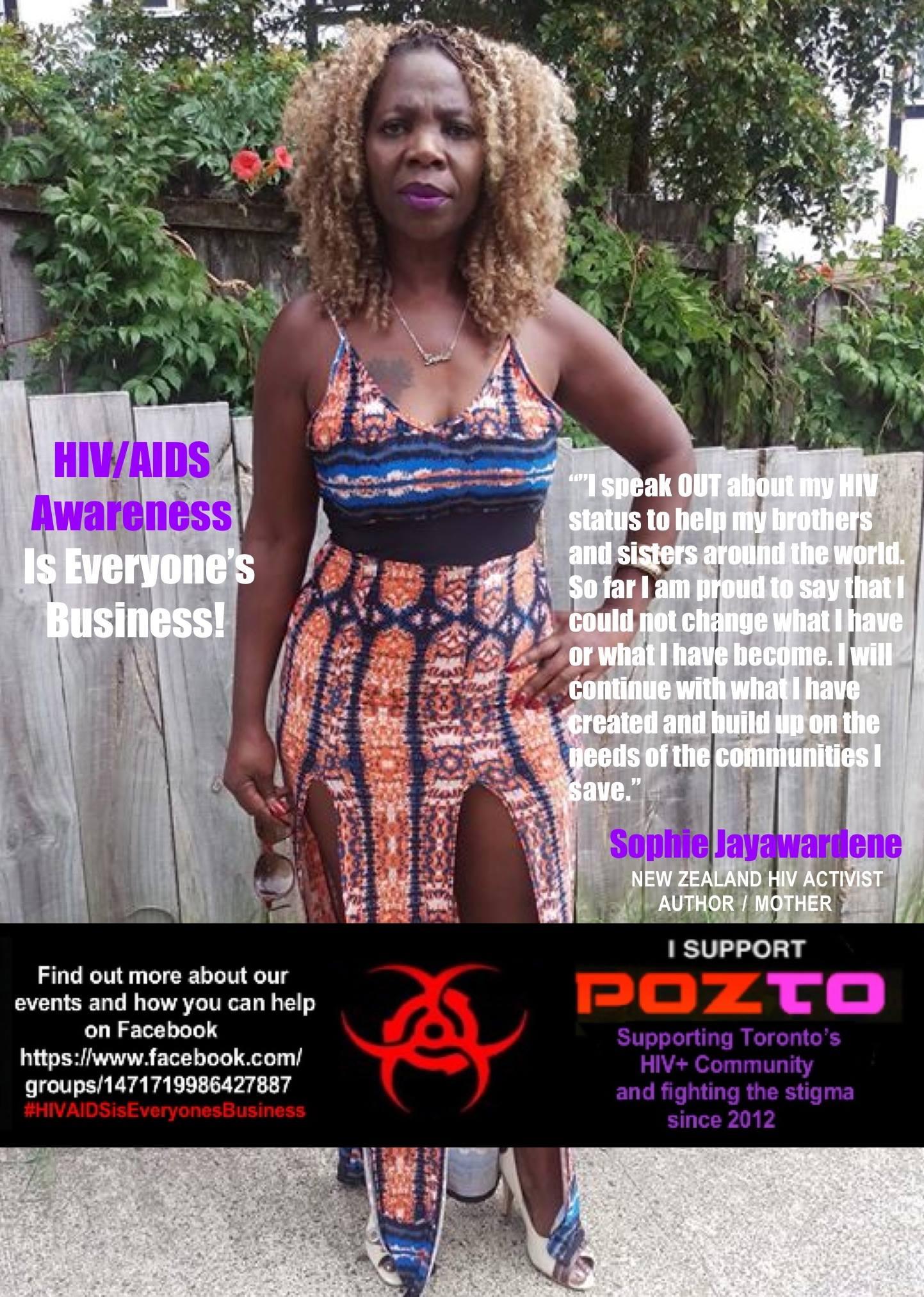
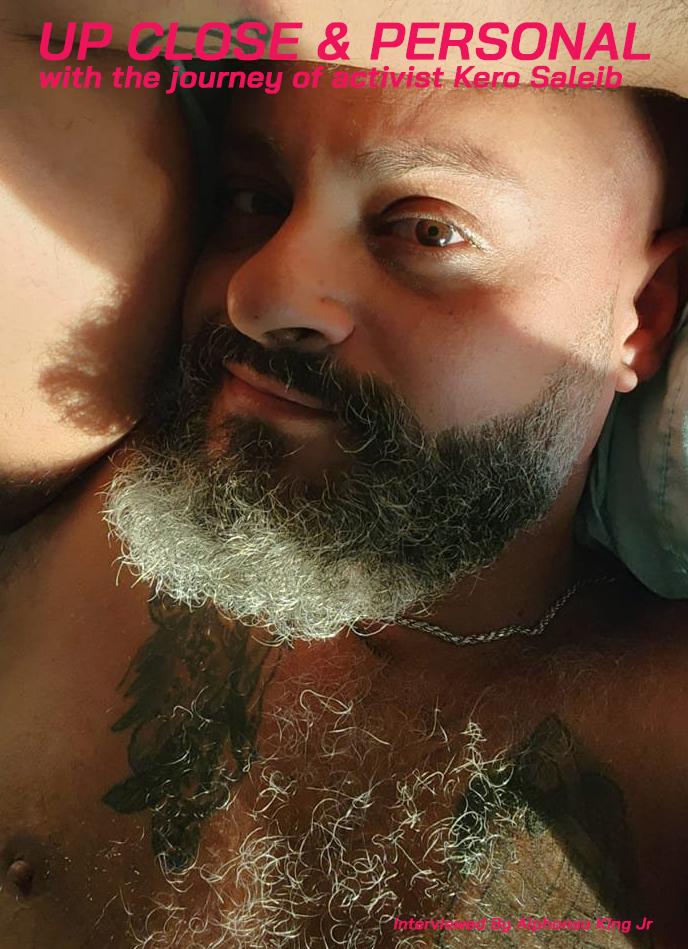
AK: Thank you for taking the time to do this interview. How are you today?
KS: Thank you for having me, this is such a huge honour to be in the presence of greatness and inspiration. I am doing really well I have to say. Have my ups and downs and sideways moments, but happy and content throughout it all.
AK: Would you mind telling our readers a little about yourself? Where are you from? What's your background?
KS: How much time do we have? Haha! So, in a country far far away named Egypt, a young boy was born, his parents thought they were going to have twin girls, but instead ended up with me! Hahaha! In all seriousness, I am Egyptian born, queer, non binary, former old catholic priest and now drag queen, HIV activist and advocate for middle eastern folks. I have been living in Canada since July 1st, 1987. Come from a very Coptic orthodox Christian family. Religion is life! Fast forward about to a moment that forever marked me, and the internalized questioning started. I was in grade 5, and my dad yelled at me for being an effeminate boy and told me to butch it up or he will take me to the hospital and have me do surgery and transition me into a girl. I was confused, sad, scared, and traumatized. It shut me down for a very long time. It shut me down to boundaries, understanding healing and living a life of needing constant validation from my parents and approval of their love and the church! Fast forward to the age of 15. I was very devoted to the church. I grew up lonely, bullied and felt unsafe, the church was my safety and my mom.
There was a man who came to the church to speak during a youth conference in church and it was about homosexuality. That was the first time I heard that word of understood it. I will never forget the words that came out of his mouth about it were “we should get rid of all homosexuals and be done with them, so we won’t have any more problems in the world…”, then he went on to explain what homosexuality was and how of an abomination it is. I remember sitting front row in the church and running to the priest begging him that I need to repent. I told the priest and he said he knew. Someone told him he saw me in an online profile. I was confused. The priest then told me right away, first thing, is to stay away from the kids (I used to teach Sunday school and was a deacon) and that I am no longer allowed in the church or to have communion and to tell my parents and sent me home. I was so shocked. I cried so much as I walked home. I was shaking. I hated myself so much for that. A week later, on my way back from a trip with friends to Niagara Falls, my parents paged me to call them right away. I used my friend’s cell phone, and my mom was yelling asking me who I was with as she was filled with so much anger. I got home and there were 3 priests, my mom holding a knife to me asking me if it was true that I am gay, and my dad tempted to throw the hot pan of oil at me as he was making French fries for the priests. I didn’t know what to do or say. I said yes it’s true. The priests then went on to interrogate me as I am crying and feeling bullied in my own home. The priests pinned me down, trying to do exorcism on me, which obviously didn’t work and told my parents if they let me live under their roof, they were letting sin and the devil in.
So, I was kicked out of the house. My boyfriend at the time took me into his home, cared for me until I was ready to start my first year of university. I was a month away from turning 16 when I started university. He encouraged me to live life for myself and to finish my education. I lost him at the age of 19 in a terrible car accident. My world turned upside down from there. I coped with sleeping with 4 to 5 men a day for almost 4 months. I forced myself into conversion therapy and it didn’t work. I was also engaged to be married to a woman at a certain point. Glad that didn’t work out at all. I prayed so hard for it to be called off and she called it off, because of materialistic and superficial reasons. I was so happy. At that point, I went back and lived on my own and my life from there as a queer man moving forward. I am gonna stop there, because that can go on forever. But I wanted to share a foundation with you of who I really am and what empowered me to be everything that I was told is wrong in the world. You can read further about my life at https://xtramagazine.com/power/meet-the-man-behind-torontos dance-party for lgbt-middle-easterners 76302
AK: I hope you don't mind but I ask this of everyone...how long ago were you diagnosed and what was that experience like?
KS: I don’t mind at all. It was June 27th 2007 that I found out. My world turned upside down. I was one of those people that shamed people living with HIV. I was so ignorant and uneducated.
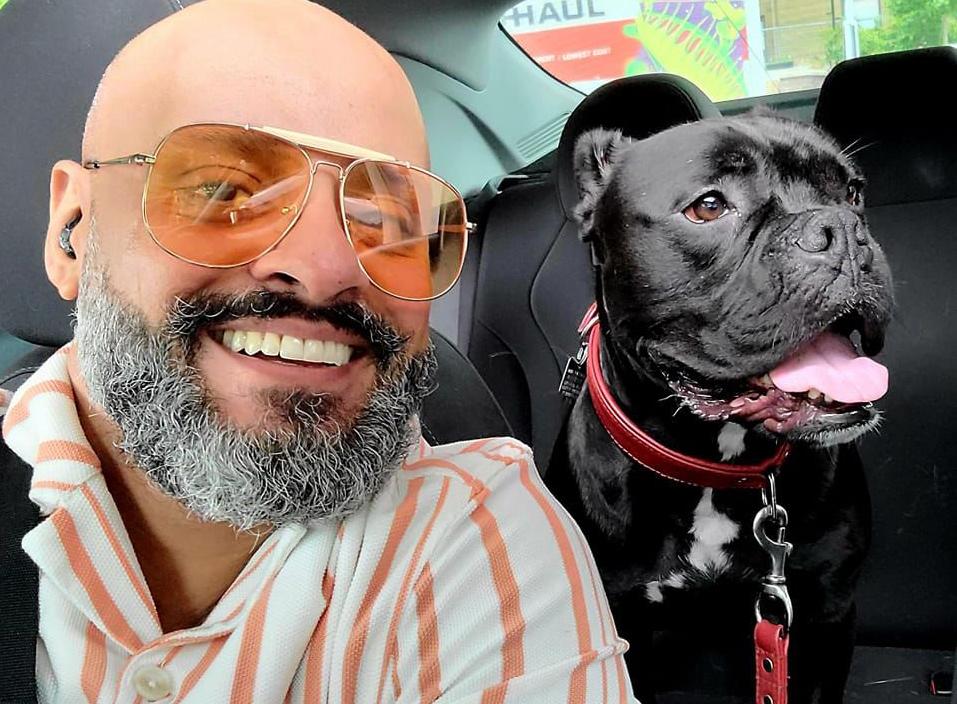
When I found out, I fled to Montreal. I didn’t want anyone to know. That escape led me into a life of drug addiction, escorting and homelessness. I did everything wrong to try and fit in and continue to seek that validation in my life. If it wasn’t from my cousin who was living in Kenya at the time, who took me there for what was supposed to be only one month, and turned into 3 years, I would be dead by now. That then empowered me to be the change and the voice of many. As a middle eastern POC, there was nothing available for us at all. Everything was so white-focused, with no knowledge of cultural understanding of how we were raised and made to think. I became an old Catholic priest and pastor; we were a church that focused on activism and change for people living with HIV/AIDS and accepting of queer people. That’s when my real work started. I came back to Canada and started working in the HIV sector, with ASAAP, where I started the RAHA program, a program that focuses on Middle easterners living with, affected by or at risk of HIV/AIDS. I was recognized in 2012 as one of the Heroes as one of the most influential faith leaders on changing the face of HIV/AIDS in the US, where my picture and bio are now in the archives at the Martin Luther King library in DC with MLK himself!! Recently received the Charles Roy Activism for HIV/AIDS award at the Inspire Awards in September.
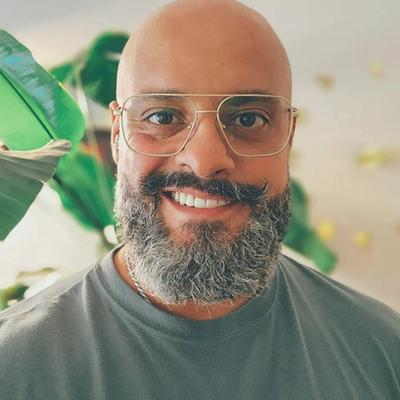
AK: I first met you in 2016 when you received your POZ-TO honoree. You were fundraising through your Arabian Knights event. I think you changed that and started working in the field of AIDS Service Organizations. Could you tell us about that party and when you decided to do this work?
KS: That is indeed correct. I will never forget, when I heard about you and stalked you on social media, I was like DAMN!!! I was so honoured and blessed to receive this recognition. Arabian Knights LGBTQ was started in February of 2016 because there was suddenly a huge influx of newcomers and refugees from the Middle East. I have been living in Toronto long enough to be able to start a party that brings them together and helps them celebrate their culture, their race, and their queerness. It did start off as a non profit organization, where we helped refugees settle when they arrived here. Making sure they had food, clothes for winter and so on. Somehow along the way, that seemed to be problematic for folks and the attendance at the event was bad. So, I made changes. I decided to change the name to be more inclusive. It is now Middle Eastern Nights and changed locations to the Black Eagle from Club 120. I decided to make it a for profit event and instead hire people to help me with the event, the door, performances, promotions and so on. It’s been a huge success since and it’s getting bigger and stronger. A big part of Middle eastern nights is the harm reduction outreach presence at the event from ASAAP’s Raha program. I wanted to destigmatize HIV, promote PrEP, and encourage harm reduction approaches when it comes to substance use. Things that were not available to me when I was diagnosed and partied like a rock star. People can follow Middle Eastern Nights on instagram @menights and @egyptianknight83 and www.facebook.com/MiddleEasternNights
AK: Now...I hope you will talk about this with us because I'm sure there are plenty of our readers who might not understand, but you are non binary, right? Would you mind explaining what that means and what you hope sharing this information will do to perceptions in the community and the world?
KS: YASSS HENNY!!!! Lol. The liberation of learning what it is and accepting it as my truth was the best thing for me. Non binary falls under the transgender umbrella of terminologies when it comes to gender identity. It can mean, one of two things; one – you identify as both male and female, or two – you don’t conform to either male or female. In my case, I identify as both, so I use the pronouns they/them or he/him or she/her! What I want to remind people, is that being non binary is not a trend or something new, as a matter of fact, it’s more about reclaiming the power of many of our histories. Non binary has existed with many of our ancestors. I think for me it’s humanity decolonizing our gender identity and getting back what was erased. There is only so much you can suppress in terms of our existence. Non binary has given so many folks the liberty to live their most authentic self and make sense of what hasn’t made sense for a long time. I know many struggle because of pronouns, the struggle happens for many reasons: one, because you are unlearning something that you have gotten used to for almost all your life. Secondly, because some make it about themselves and their comfort, so they question it because they refuse to change and don’t want to complicate things for themselves. Lastly, very
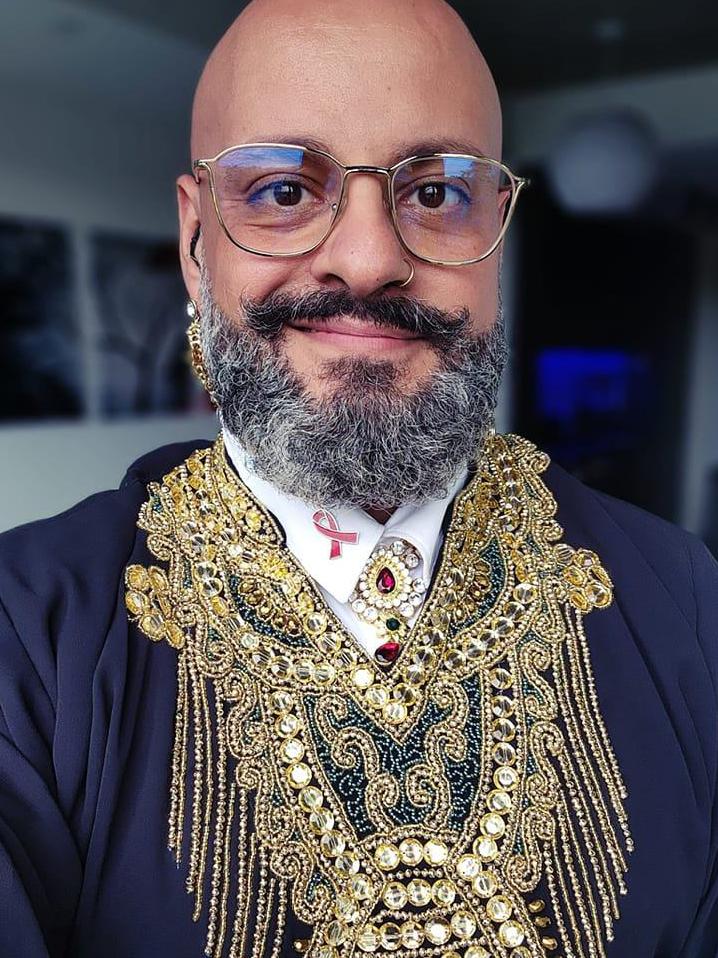
often it’s because people just don’t ask, what are your pronouns, and are scared to make a mistake and feel attacked. The “attack” comes very often from people who are constantly questioned and disrespected for wanting to be their true selves. Just ask, apologize if you make a mistake, don’t make it about yourself, cause it isn’t and be proactive to do your research and get a better understanding of what it means and how it’s been part of ancient history, I am talking B.C ancient. I am really hoping people will remain open to this and help them find their true selves and live their best lives. Most importantly, I want it to bring unity and safety in the queer community. We need to be in solidarity and not divided about it. Just let people be and learn how to be there and support and be better for them. It will only help be better for ourselves too by doing what I mentioned earlier.
AK: You are the host of THE QUEER BUNCH. I used to be one of the co hosts. Could you tell our readers about the show and how to find it online?
KS: I was the host, I no longer am a host. However, the show is still going and with a new approach. The Queer Bunch was a show that was started during the pandemic, bringing co hosts on as well, where we invited guests to speak and have a conversation on current topics that affect the world and the queer community. What was great is the co hosts we all varied in age, in race, in gender identity, in culture and lived experiences. The combination of our intersectionality played a key role in the success of the show. The show can be watched on YouTube and Facebook by looking up the Queer Bunch. I am no longer on the show as a host, because of time and a potential conflict of interest with my current job.
AK: And before I let you go, if you could give advice to your younger self what would you say?
KS: Oh little Kero!!! You will experience life like no other person. Don’t expect others to understand. Stop chasing after the external validation for love and love yourself more than anything else. Love yourself through self acceptance and affirmation and therapy!!! Therapy will be your lifesaver. Continue to love unconditionally, continue to be your true self, and continue to be not ok, when it isn’t ok. Continue to be that change. It will save lives and help so many people, but you will have to go through hell to appreciate and learn all these hard life lessons. Your empathy and vulnerability will be your biggest strength. You will see life in a way that many will never understand. Embrace your morbid blessings.
Be sure to check out the World AIDS Day episode of The Queer Bunch with special guest Jade Elektra as they discuss living with HIV and where and how the fight against stigma and disclosure laws has and hasn’t changed over the years. Definitely a much needed conversation that we all should be having.
Find the show here: https://www.youtube.com/watch?v=k7vc 6aql0
Or here: https://www.facebook.com/TheQueerBunch/videos/1471621796659496

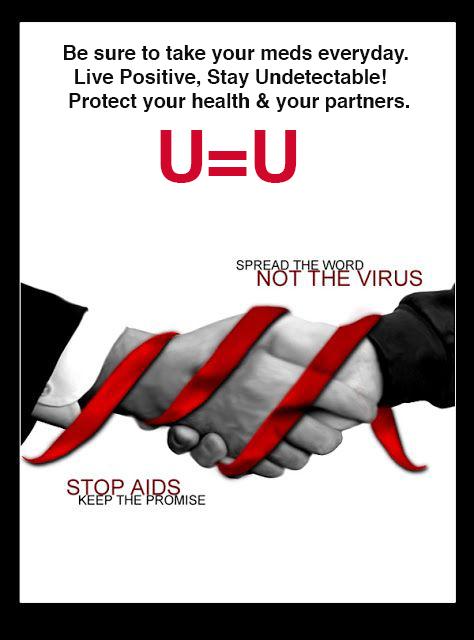
Listen to the mix here: https://www.mixcloud.com/djrelentlessny/ear-candy-december-2022
Download the video of this mix here: https://krakenfiles.com/view/FuZdoGxbqj/file.html
Check out DJ Relentless’ Mixcloud page: https://www.mixcloud.com/djrelentlessny
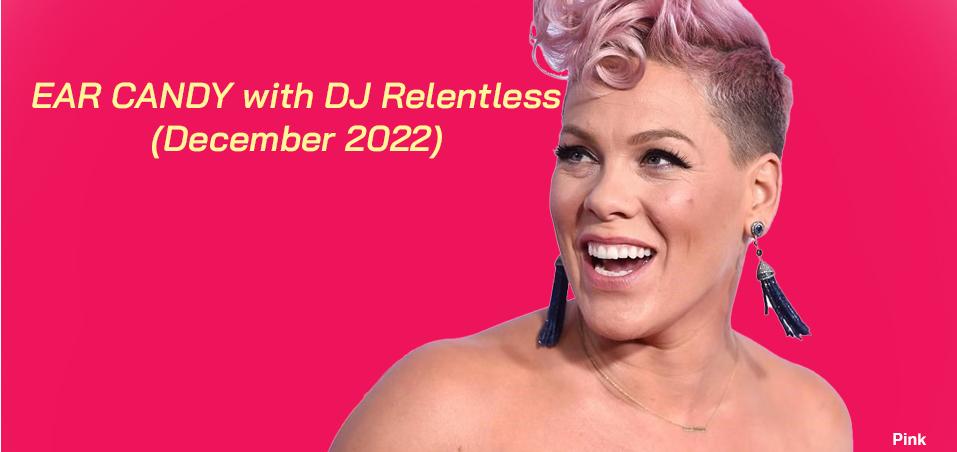
Check out DJ Relentless’ HearThis page: https://hearthis.at/djrelentlesstoronto
Well, I guess it's a wrap for 2022. And what a year it has been...musically, politically and in Pop Culture. I'm sure you have been bombarded with Christmas music and commercials ever since Halloween ended. So, don't worry...I did not include any Christmas music in my mix. Instead, I chose the latest releases and remixes to close out the year. We’ve got twenty-one songs to talk about. Let’s get started, shall we?
One of our readers wrote me and said that I had not programed any Hip Hop in a while. So, I decided to look through the latest releases and see what I liked. Honestly…I’m not lovin’ very much Hip Hop these days. The lyrics are the thing that turning me off. How many songs can there be about how much money you have and how hood you can be?
So, I started with “Privileged Rappers” by Drake & 21 Savage. I’ve grown bored with Drake’s thug flexing when everyone knows he is a privileged rapper. For me, “Sticky” and “Massive” are the two standouts from his last album. But the stunt that he and Savage pulled with the fake VOGUE magazine cover was kinda brilliant. Being sued for copyright infringement is probably the best publicity for a Hip Hop album ever.
Our second track is “Messy” by Quavo & Takeoff. It is always disheartening to hear that someone was murdered…especially over a stupid argument. Rest in peace, Takeoff. But I can’t help but wonder if this Trap speed Hip Hop that’s all about flexing and declaring that your greatest with so much money that you can’t count it all has something to do with the animosity that gets folks killed. What are we saying to each other as black men with all this materialism and machismo?
This formula, in my opinion, is tired and worn out. What are we saying with these lyrics? Who are we trying to one up? And aren’t we reaffirming stereotypes by perpetuating this in-fighting through words?
Anyway…back to our Hip Hop section with selection number three….”Munch (Feelin’ U) by Ice Spice. I kept hearing the name but since I don’t work in a club that plays Hip Hop I didn’t go out of my way to find her. But I did investigate for this mix. There’s actually a club mix of this song that I got after I did this particular set. It’s not bad and I would probably play it for the right crowd but lyrically it left me exhausted. So, the girls in the game are only really talking about the power of the pussy and how you so much bettah than dat other hoe…
Followed by “Tomorrow
B. Listening to GloRilla reminds me why I stop watching American Idol. Her flow is mediocre at best. She sounds like any girl I would run into on the subway in NYC when school lets out. There’s no character in her delivery but I guess her popularity comes from the thought that she sounds so common…like any of the girls in a ghetto neighborhood. And I know someone is going to get upset about my opinion, but I have been a DJ since 1980. You have to come correct and get my attention. Now Cardi always delivers because she is a character and sounds like she came to rap. But then again this is another track about “I’m bettah than you”. More fuel to start fights. More fuel for racists to say that this is
 2” by GlolRilla & Cardi
2” by GlolRilla & Cardi
Black Culture and what they stand for. I miss Common, Arrested Development, Public Enemy, A Tribe Called Quest, Queen Latifah and Monie Love. It didn’t have to be all hood rat. These rappers took on issues but also made party records. We’ve got to get out of this rut before we get stuck in a loop of violence. What you put out is what you get back…remember that.
So, on our fifth selection I switched gears and jumped from 80 BPMs to 108 with “I Dance” by YG featuring Duki & Cuco. At least this is at a reasonable speed and could easily lead to something dance able. I like the collaboration of Hip Hop with a little Latino flava thrown in. We need more genre mashups! They’re great for transitioning to something else if you need to.
And speaking of transitioning to something else, that’s exactly what I did. I went Pop with Harry Style’s “Music For A Sushi Restaurant”. I first heard this song on an Apple Music TV commercial. But the music video is probably my favourite of his catalog. Him as a Squid Man is brilliant and the storyline is very creative. Hope you use the link at the beginning of the article to download the video of this mix.
I have to admit that when I heard “Hung Up On Tokischa” by Madonna featuring Tokischa I didn’t care for it. But it’s kinda grown on me. The Moombahton twist on her hit “Hung Up” definitely has transformed the song into something different. I also have a Liscious The Daddy Remix but I think the original release works better for this particular set.
I watched the induction ceremony for the Rock-N-Roll Hall Of Fame this year and it was an 80s wet dream! Artists like the Eurythmics and Judas Priest were recognized, and it kinda felt good to see. And one of my favs got recognized as well…Pat Benatar. The funny thing was…I thought she would have already been inducted. But her and her husband, Neil Giraldo played an amazing set of her hits and looked great. I love it when older artists age gracefully.

So, I decided to dig up the Simo Remix of “Love Is A Battlefield”. I even went and did a video edit exclusively for this mixed set. The remix brings this classic up to date.
Now, I know last month I said that Rihanna’s song for the Wakanda Forever soundtrack didn’t count but that was before I heard the DJ Dark Remix of “Lift Me Up”. Very nice production and has a nice little bounce to it. Definitely not the sappy ballad that was released.
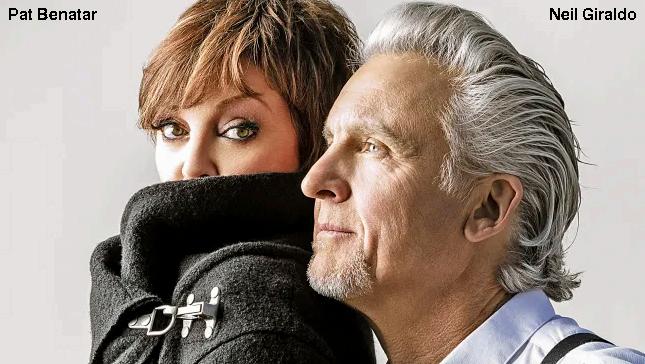
For our tenth selection I grabbed some pure UK Pop…The Spice Girls. I knew they had done a tour recently but did not know that they were still recording. The funny thing about “Never Give Up On The Good Times” is it almost sounds a lot like “Ain’t No Stopping Us Now” by McFadden & Whitehead. It has that familiarity to it that automatically makes you like it. Or at least that was the case for me. The music video is kind of a clip fest and not really any footage of them performing the song.
Pink followed up her politically themed “Irrelevant” with a Pop Dance song called “Never Gonna Not Dance Again” which almost seems like a celebration of Democracy being saved for the moment by the results of the midterm elections. And one of my heroes when it comes to remixing and video editing is Mr. John Torres (who goes by the moniker Betamax). And I was in luck! John had just posted his Betamax Disco Mix of Pink’s track. You know when you see a Betamax Disco Mix it’s gonna be excellent!
It sure seems like Tiesto is pumpin’ out the tracks lately. His latest is “!0:35” featuring Tate McRae. Kinda catchy…I could see it getting a floor going. But it doesn’t even come close to his track with Charli XCX, “Hot In It” Now…that’s a banga! But perhaps Tiesto has a few remixes up his sleeve that might change my mind.
I’m still trying to figure out if Post Malone is a rapper or a vocalist. His earlier stuff seemed more Hip Hop but lately he has been singing more. I guess it doesn’t hurt to straddle that fence…especially in today Pop charts. So, our thirteenth selection is the PeteDown Club Mix of “Wrapped Around Your Finger”. I was oh so hoping that he had sampled the old Police classic but no such luck. Maybe someone will do a clever mashup later. This is an “okay” remix but I don’t think it’s going to be a big hit for him. Maybe if he had went that route with a Police sample it would have given it a push.
Okay…every since I saw them perform at the Grammys, I have been obsessed with Måneskin’s lead singer, Damiano David. I’m sorry, but he is just sexy! And I am fascinated by his voice. It doesn’t seem that his face fits that register but he delivers a punch every time. So, when I saw that there was a Betamax Disco Mix featuring Chic & Various Artists, I got excited. And as usual, John Torres did not disappoint. Such a clever reinvention of their song, “Supermodel” (renamed “I Want Your Supermodel”).
The fifteenth track is the Beat Thrillerz Remix of “Cuff It” by Beyonce. You know…perhaps she thought that the strength of her premise for this album was enough, but I would say she definitely did herself a disservice by not doing music videos for this album. These days you need all the angles covered and that’s probably why Taylor Swift is dominating the Pop charts right now. This is a great remix but the clip video is not selling it like I know Beyonce could if she had

a concept and themed music video. But we’ll see what happen when she hit the road for her upcoming tour.
When I heard the original release of “I Drink Wine” by Adele I couldn’t help but think of her on SNL during the skit about white women vacationing on a tropical island of black men. I didn’t think any of this song at all. But the Betamax Disco Mix made me take another look. Often remixers get stuck on a particular sound and then all of their projects begin to sound exactly the same. This is not the case with a Betamax mix. I just wish I was as creative as John Torres is in his decisions on what to remix and how to reinvent a song. Great work again!
For a few years now I have been trying to resist liking Taylor Swift. I didn’t like that she came from money and could just do absolutely anything she wanted…musically and personally. I was a hater. But dammit…she has grown on me! The John JC Carr Mix of “Anti-Hero” is the perfect speed for a dancefloor and the video is fun.
Because this video edit of the Colin Jay Remix has extra footage from the making of “Forget Me” by Lewis Capaldi, I kinda missed that this was a shot for shot recreation of Wham’s “Tropicana” video. But a friend pointed it out to me and there’s a side-by-side YouTube clip: https://www.youtube.com/watch?v=WMyOjDNnULo that is hilarious! Good for him being body positive and having fun with this music video! And the remix is pretty great too!
Our nineteenth track is the Oliver Heldens Remix of “Ferrari” by James Hype featuring Miggy Dela Rose. This track has summertime written all over it! But even though it’s cold and dreary this time of year here in Toronto, I can still see this being a popular dancefloor hit! I’m definitely playing it in my sets!
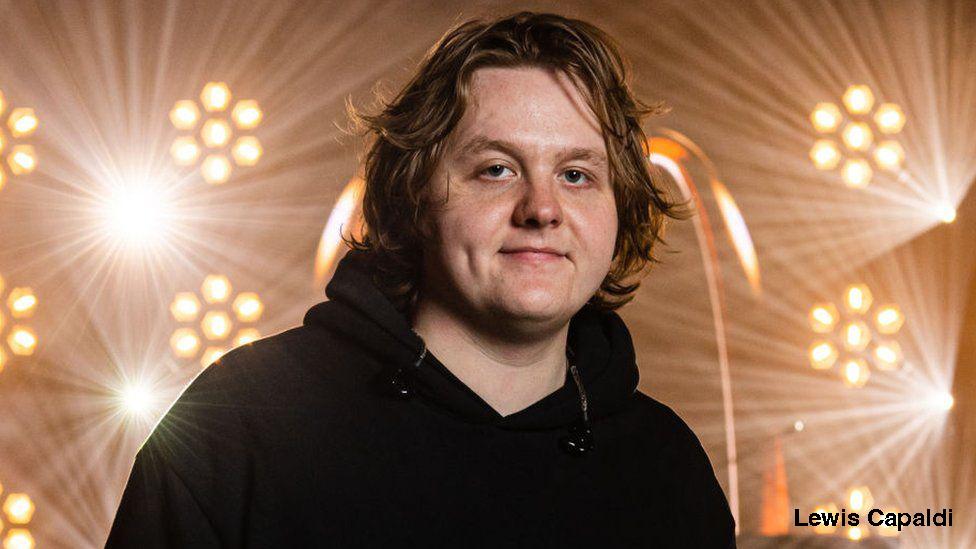
I often say that as a DJ it is hard to keep up with every genre and every new release. Sometimes you miss a song and discover it later. So, when I came across the Kue Remix of “Until I Found You” by Stephen Sanchez featuring Em Beihold I had no idea that the original slightly Pop Ballad version was released in 2021. Of course, I missed that! That’s not even in my wheelhouse to play at all. But this remix was interesting, and the video caught my eye with its nod to Elvis and Marilyn Monroe

And speaking of summertime songs, the new Jamiroquai is called “Seven Days In Sunny June”. I listened to it and it didn’t do very much for me. Maybe with a nice House remix but it seemed a little too mellow for my taste. So, I decided to reach back and grab a classic since they released the 4K version of “Love Foolosphy”. Great throwback to when Jamiroquai was doing his Disco infused tracks. And that wraps up this month’s EAR CANDY mix. See ya in 2023!
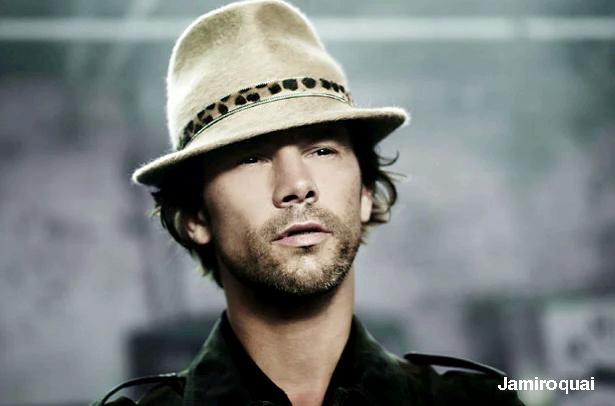
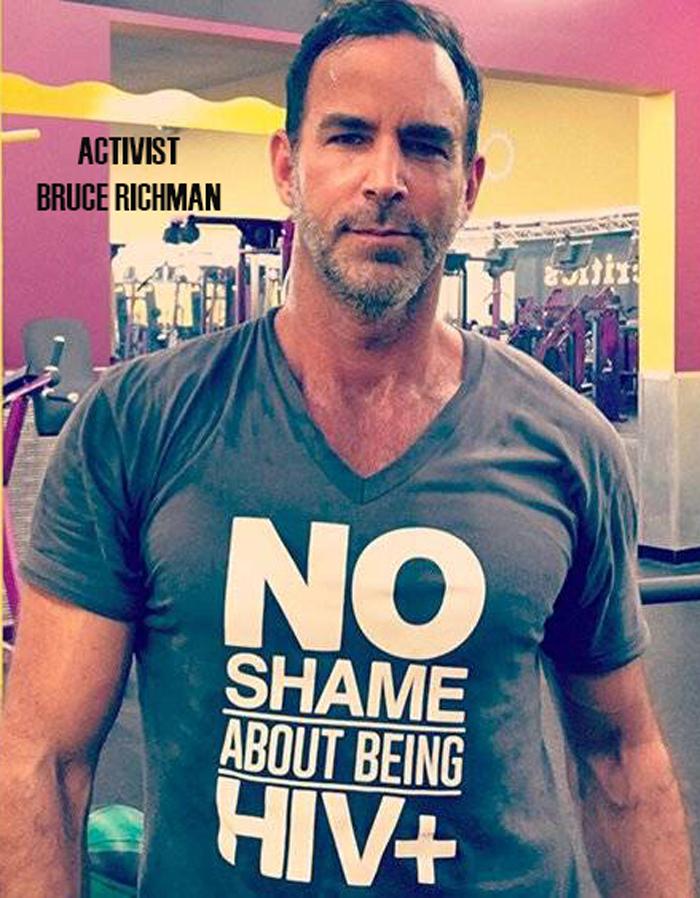
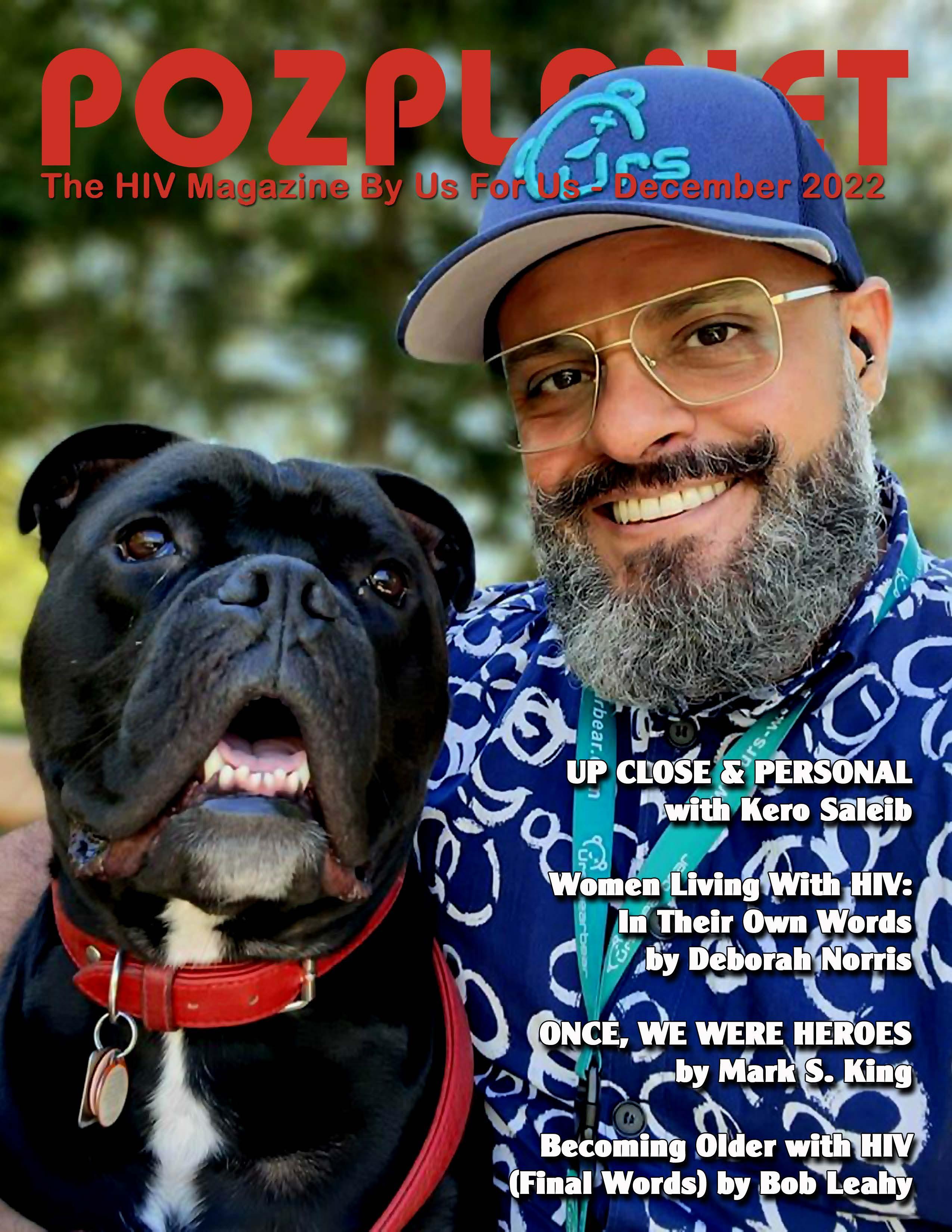
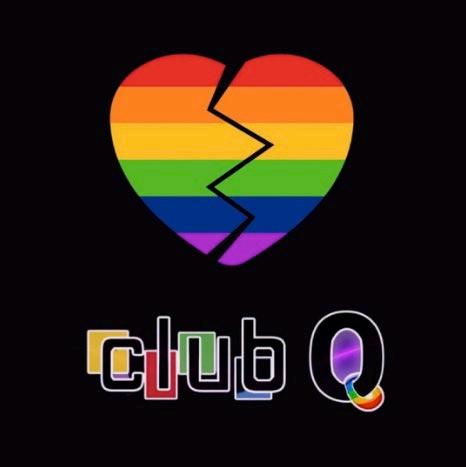
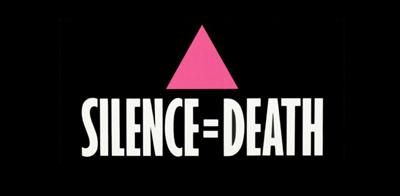
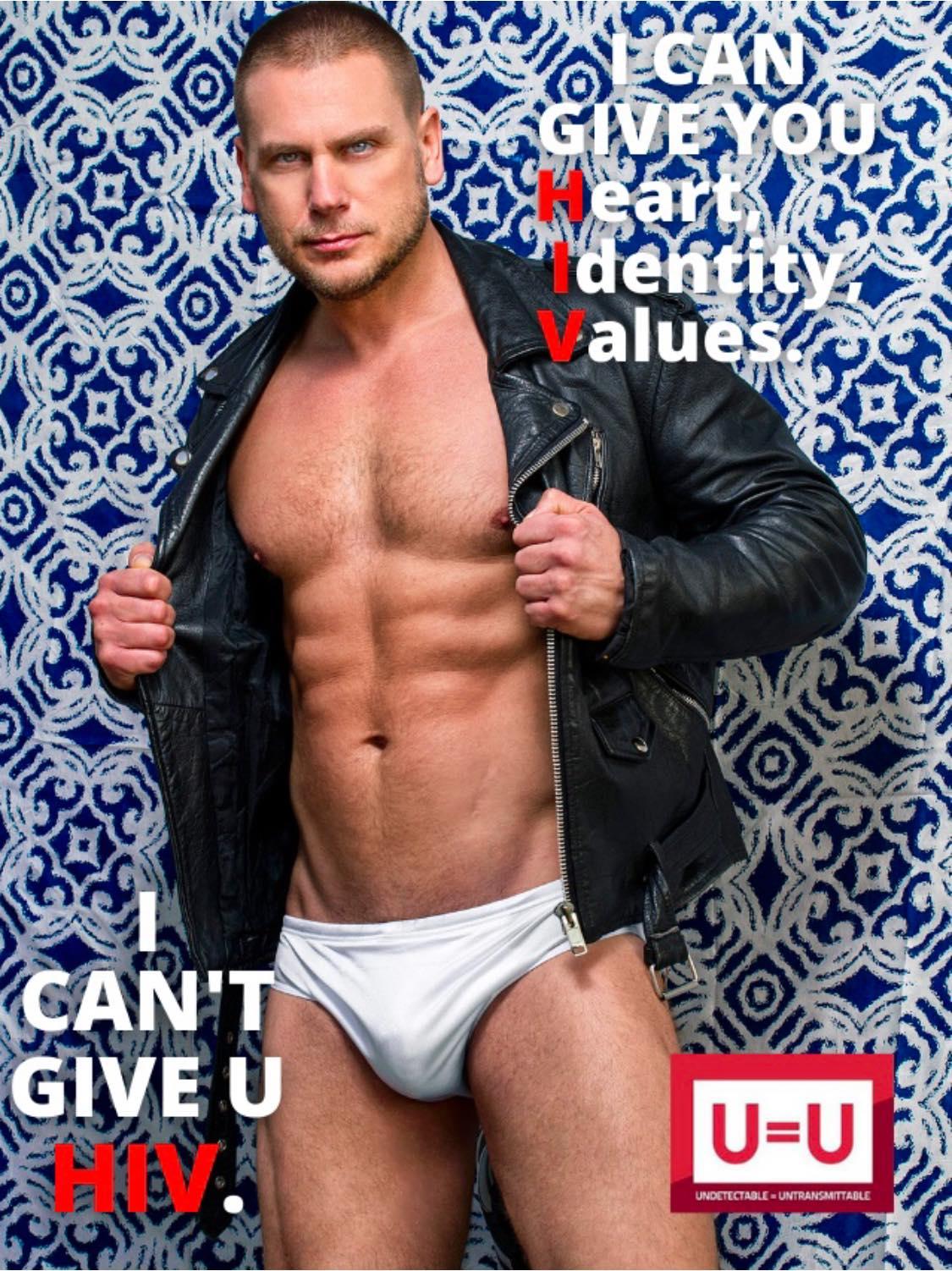


 For more blogs and information about Mark S. King visit: www.marksking.com
For more blogs and information about Mark S. King visit: www.marksking.com

















 2” by GlolRilla & Cardi
2” by GlolRilla & Cardi






